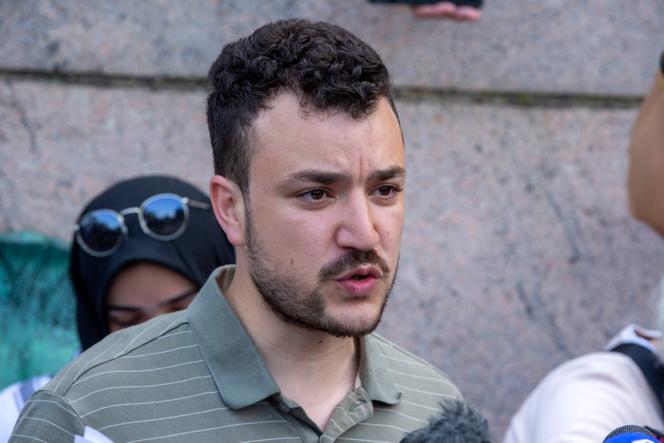

Federal judge rules that the US government must release Columbia University protester Mahmoud Khalil

A federal judge has ruled that the government must release Mahmoud Khalil, the former Columbia University graduate student whom the Trump administration is trying to deport over his participation in pro-Palestinian demonstrations.
Khalil, a legal US resident, was detained by federal immigration agents on March 8 in the lobby of his university-owned apartment. It marked the first arrest under President Donald Trump’s crackdown on students who joined campus protests against the war in Gaza. Khalil was then flown across the country and taken to an immigration detention center in Jena, Louisiana, thousands of miles from his attorneys and wife, who is a US citizen who gave birth to their first child while he was in custody.
Khalil’s lawyers challenged the legality of his detention, accusing the Trump administration of trying to crack down on free speech. US Secretary of State Marco Rubio says he has the power to deport Khalil because his presence in the US could harm foreign policy. US District Judge Michael Farbiarz had ruled earlier that expelling Khalil from the US on those grounds was likely unconstitutional.
In a new ruling on Wednesday, June 11, the judge said that Khalil had shown that his continued detention is causing irreparable harm to his career, to his family and to his free speech rights. Farbiarz gave the government until Friday to appeal the decision, and also required Khalil to post a $1 bond before he is freed.
Lawyers and spokespersons for the Justice Department, which is handling the case, didn’t immediately respond to an email seeking comment. The judge's decision comes after several other legal residents targeted for their activism won custody in recent weeks, including another Palestinian student at Columbia, Mohsen Mahdawi , a Tufts University student, Rumeysa Ozturk, and a Georgetown University scholar, Badar Khan Suri .
Rubio has cited a rarely used statute to justify the deportation of Khalil and others, which gives him power to deport those who pose "potentially serious adverse foreign policy consequences for the United States." Khalil isn’t accused of breaking any laws during the protests at Columbia. The government, however, has said that noncitizens who participate in such demonstrations should be expelled from the country for expressing views that the administration considers to be antisemitic and "pro-Hamas."
Khalil, a 30-year-old international affairs graduate student, had served as a negotiator and spokesperson for student activists at Columbia University who took over a campus lawn last spring to protest Israel’s military campaign in Gaza. The university brought police in to dismantle the encampment after a small group of protesters seized an administration building. Khalil is not accused of participating in the building occupation and wasn’t among the people arrested in connection with the demonstrations.
But images of his maskless face at protests, along with his willingness to share his name with reporters, have made him an object of scorn among those who saw the protesters and their demands as antisemitic. The White House accused Khalil of "siding with terrorists," but has yet to give any evidence for the claim.
